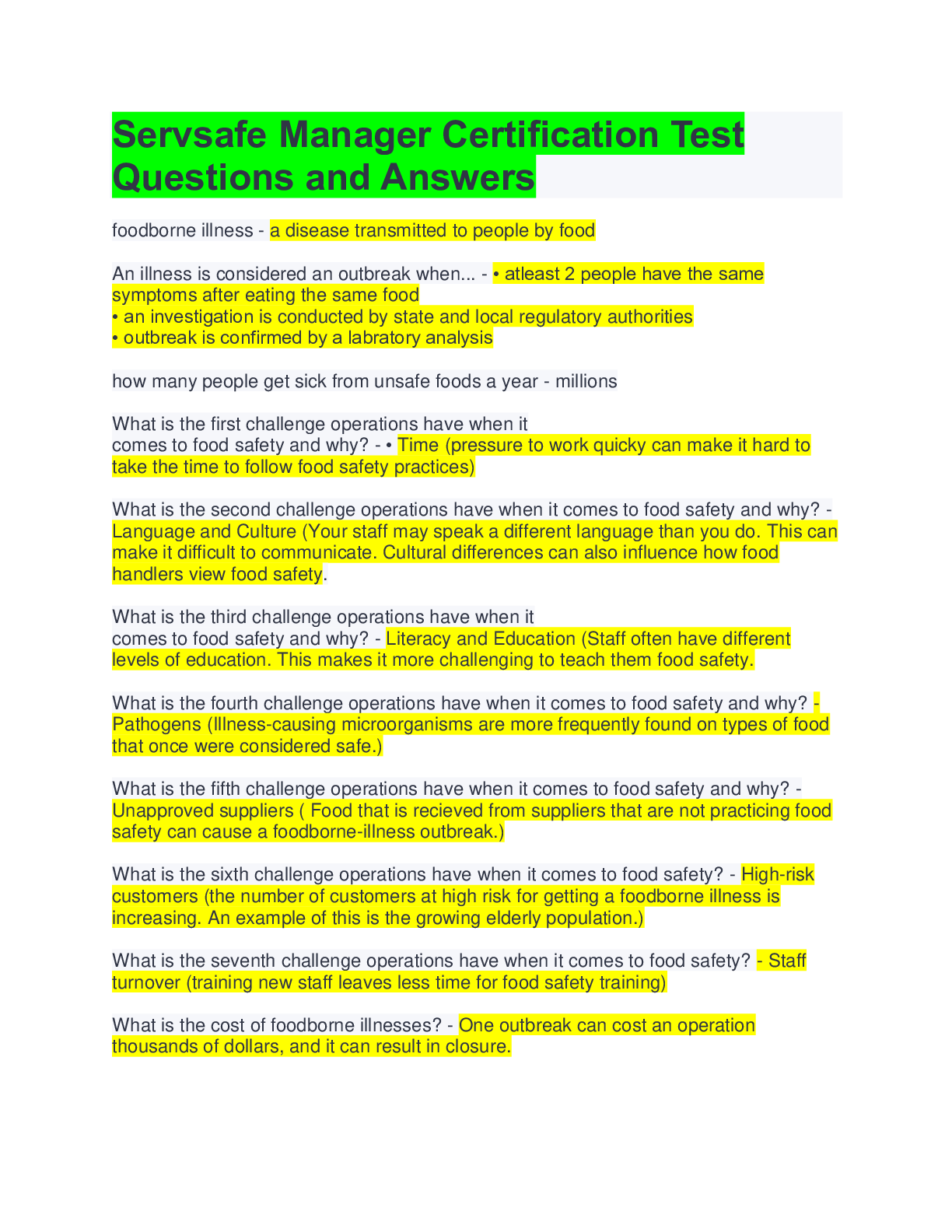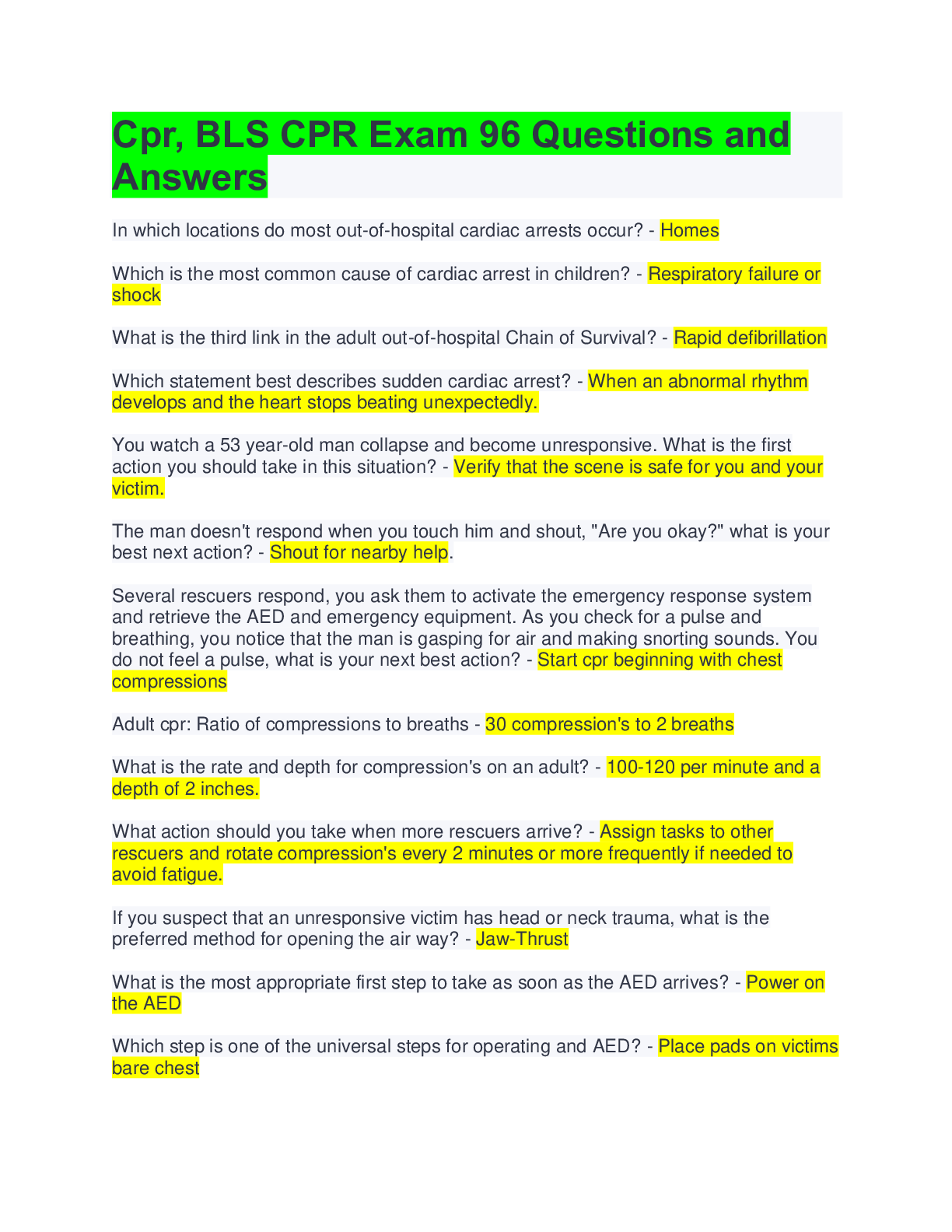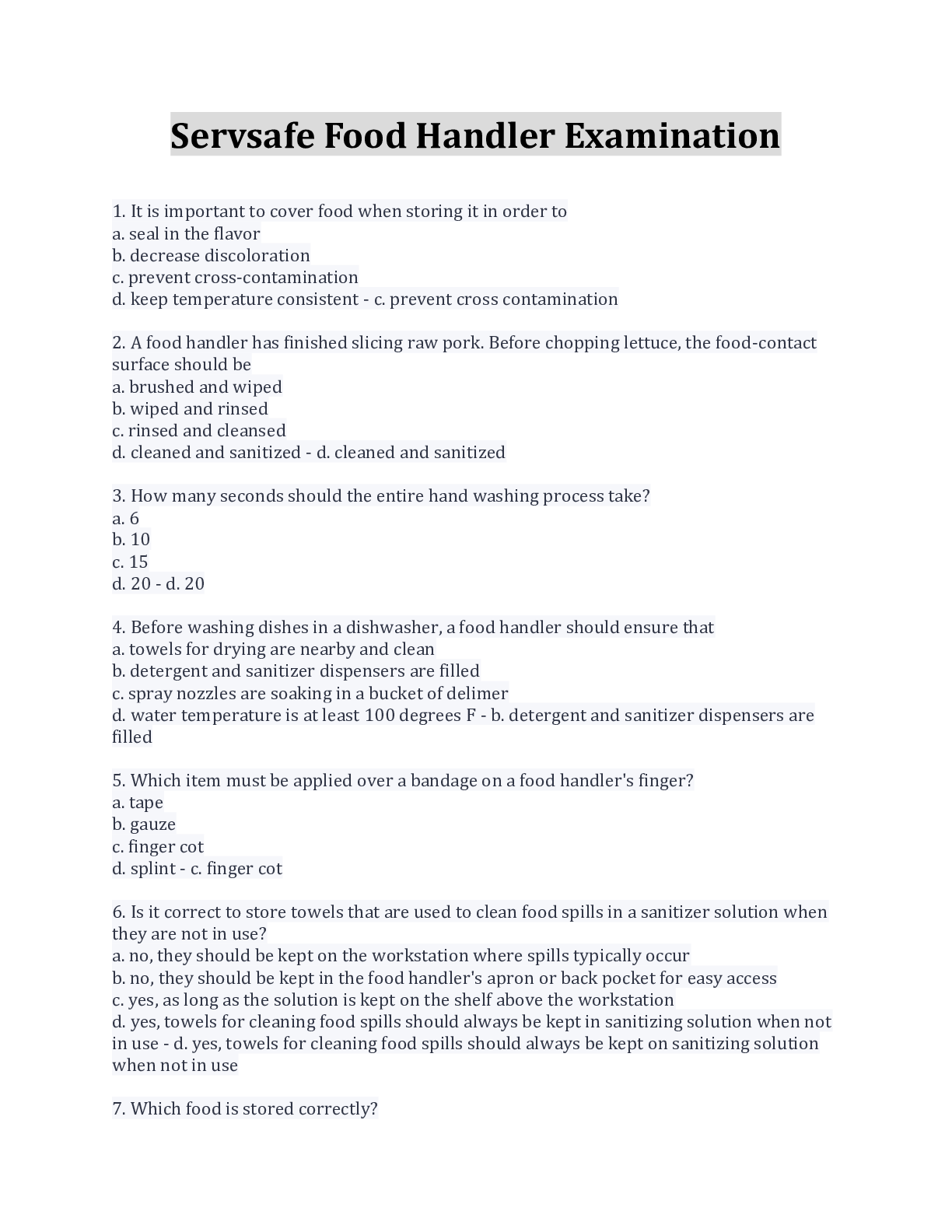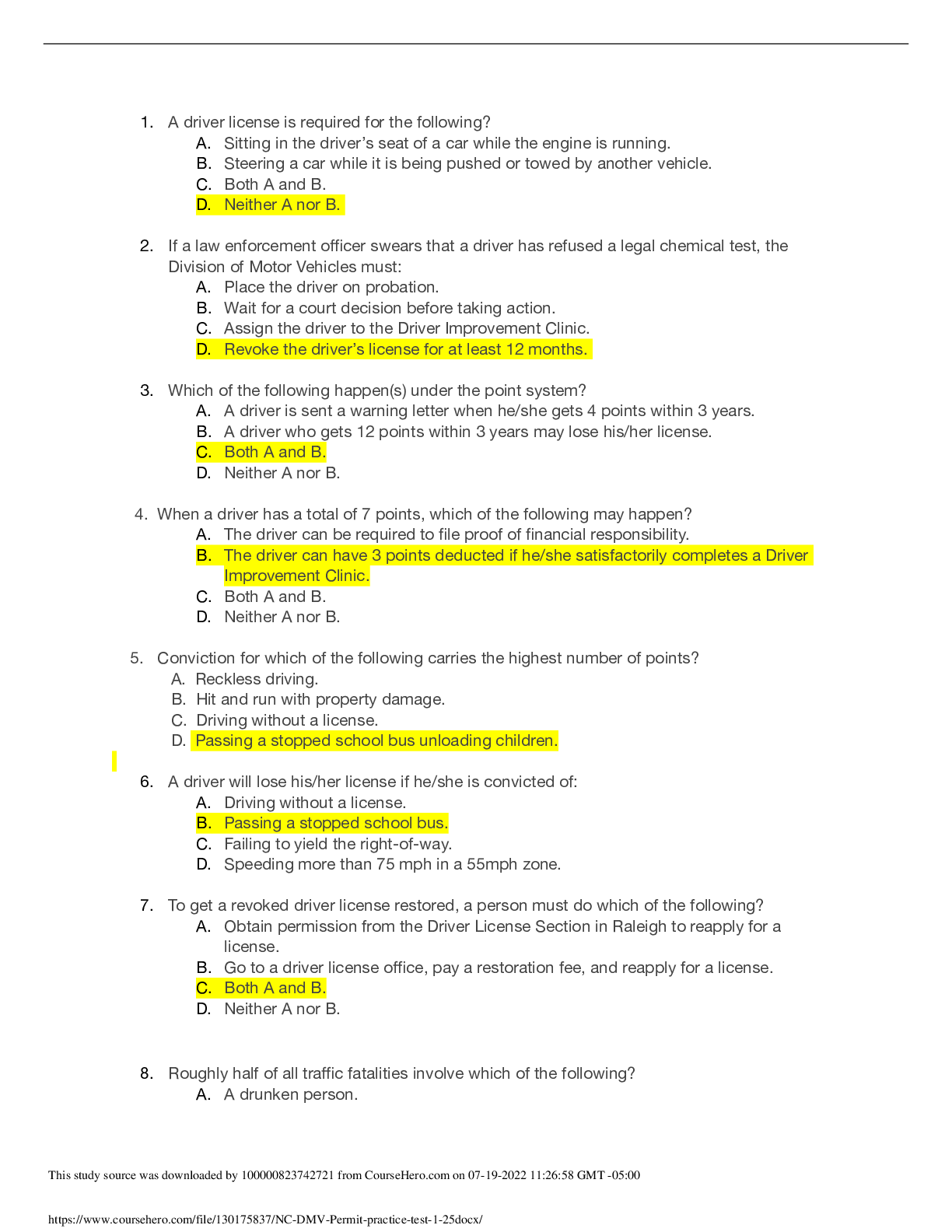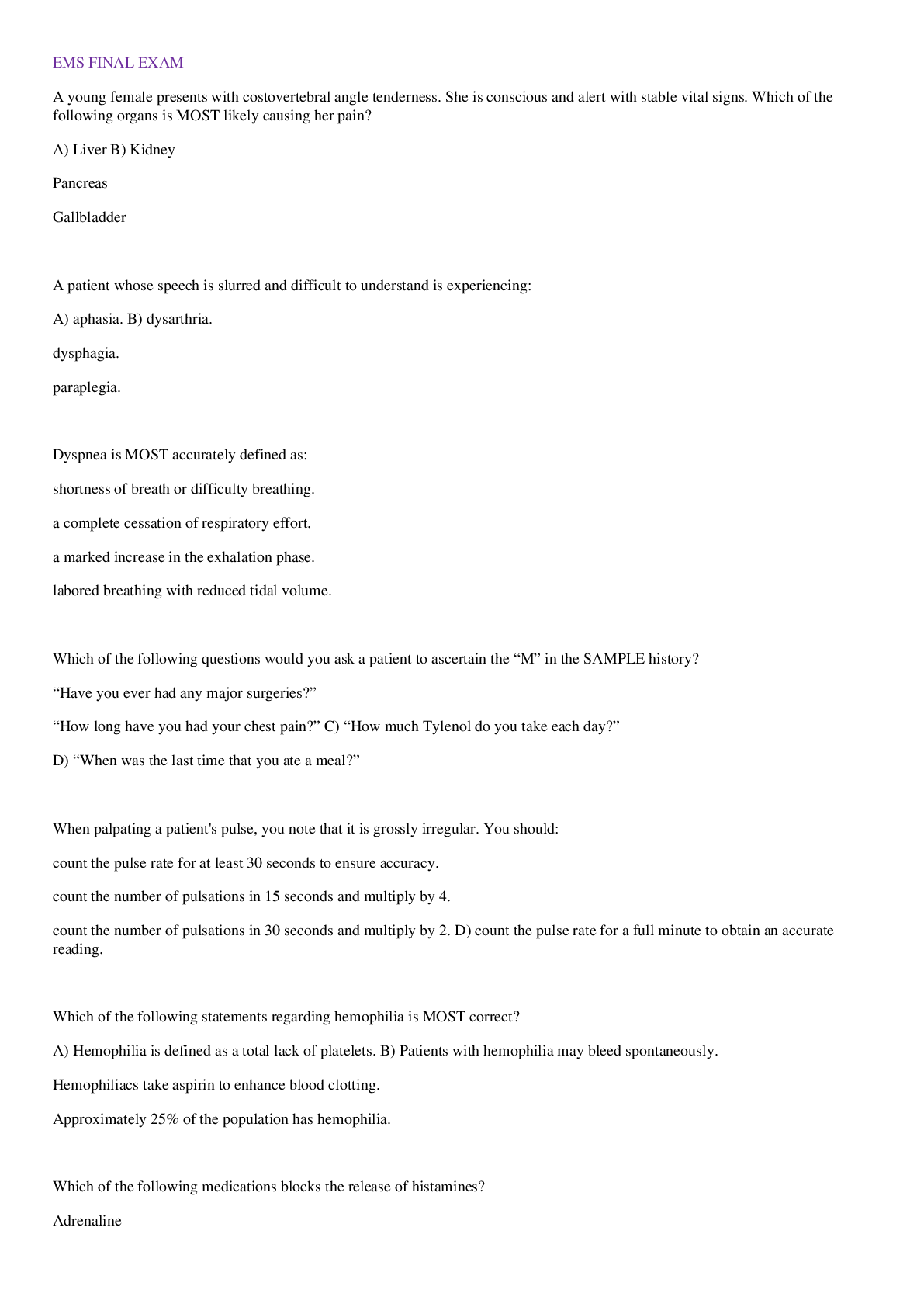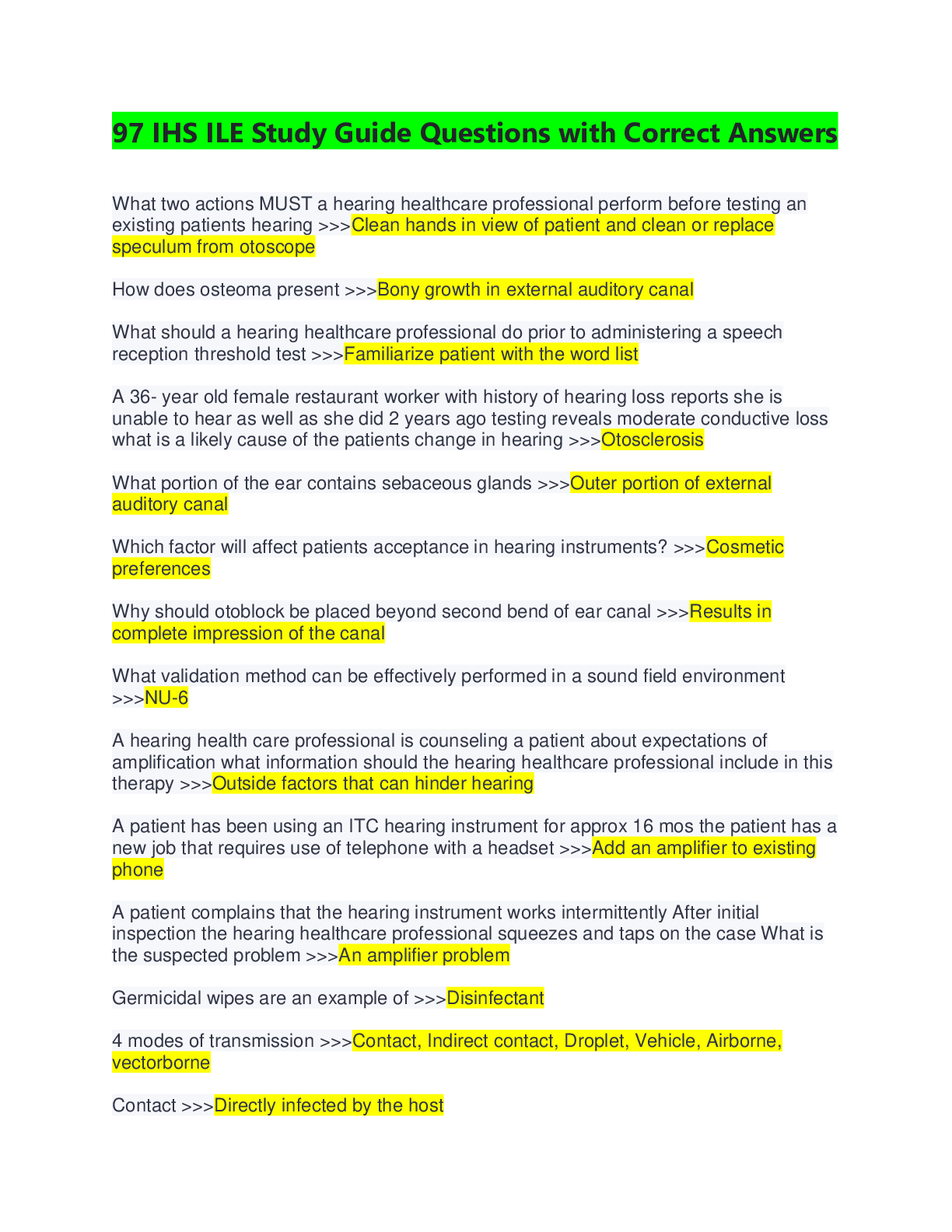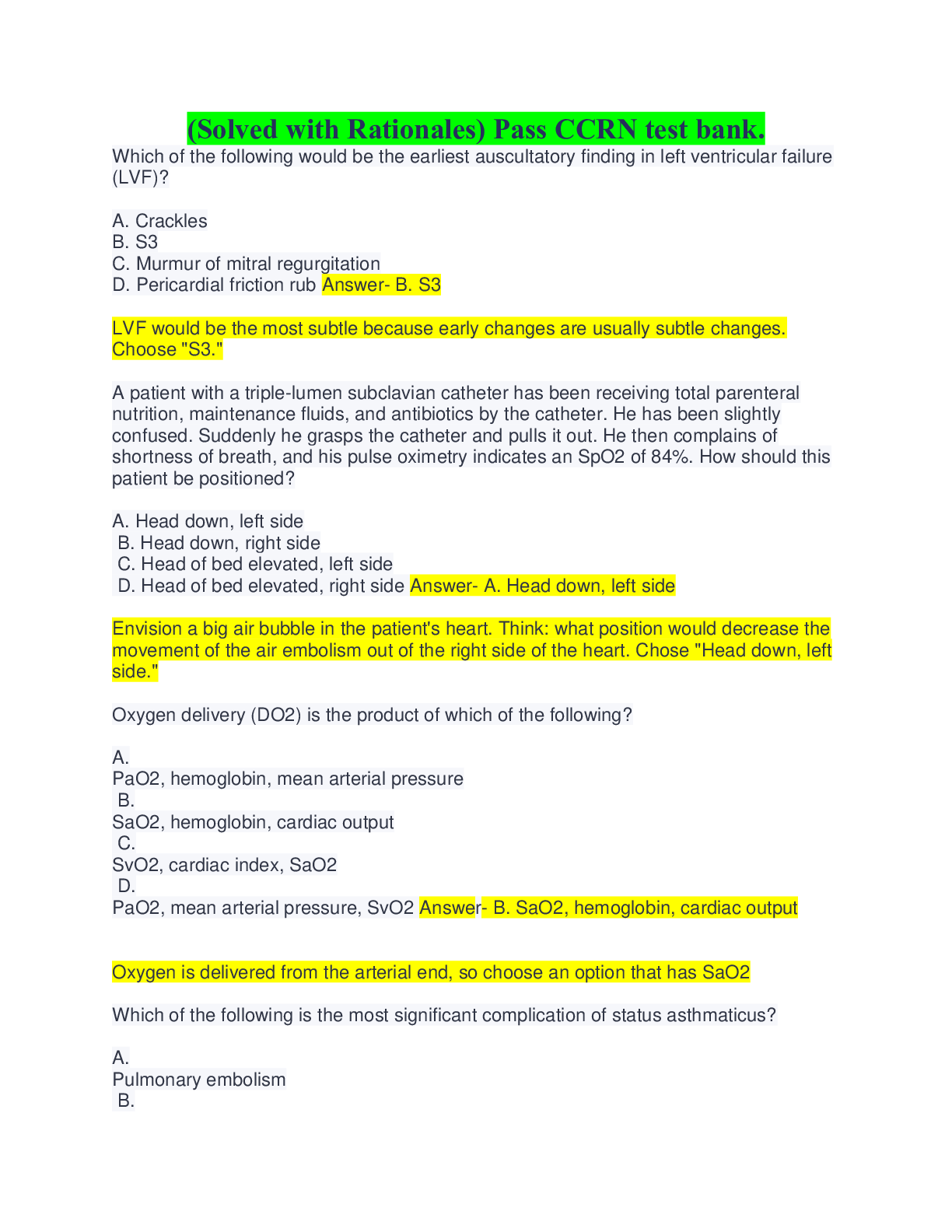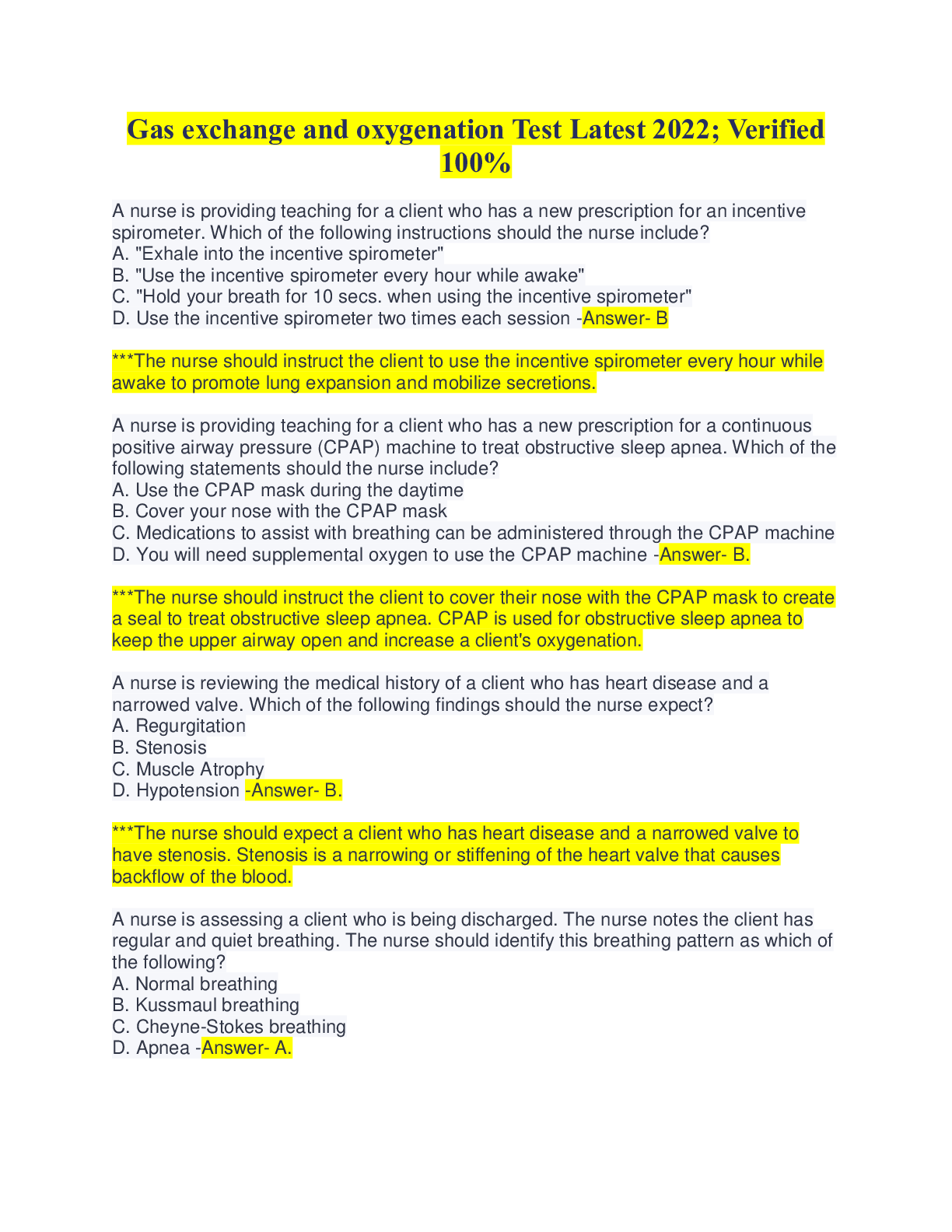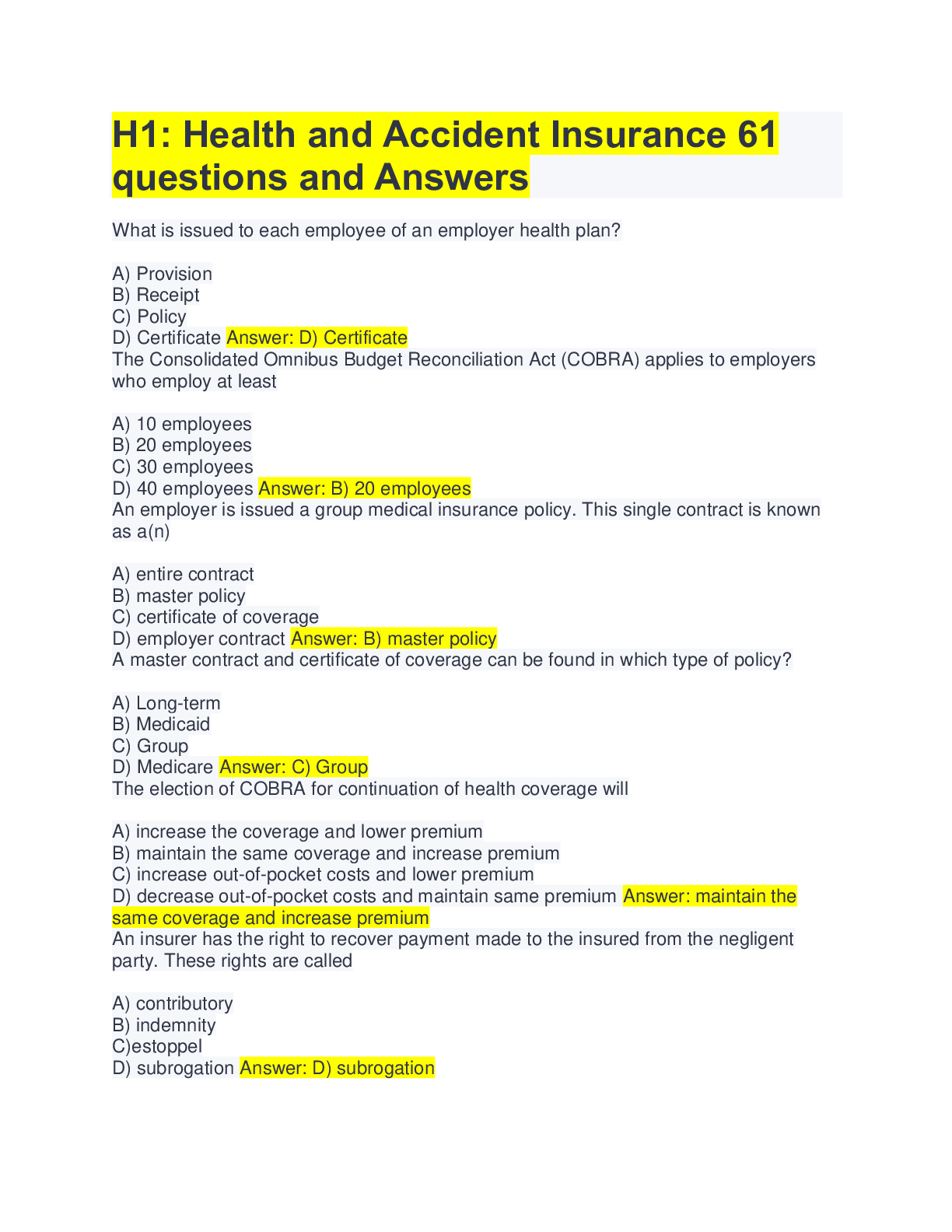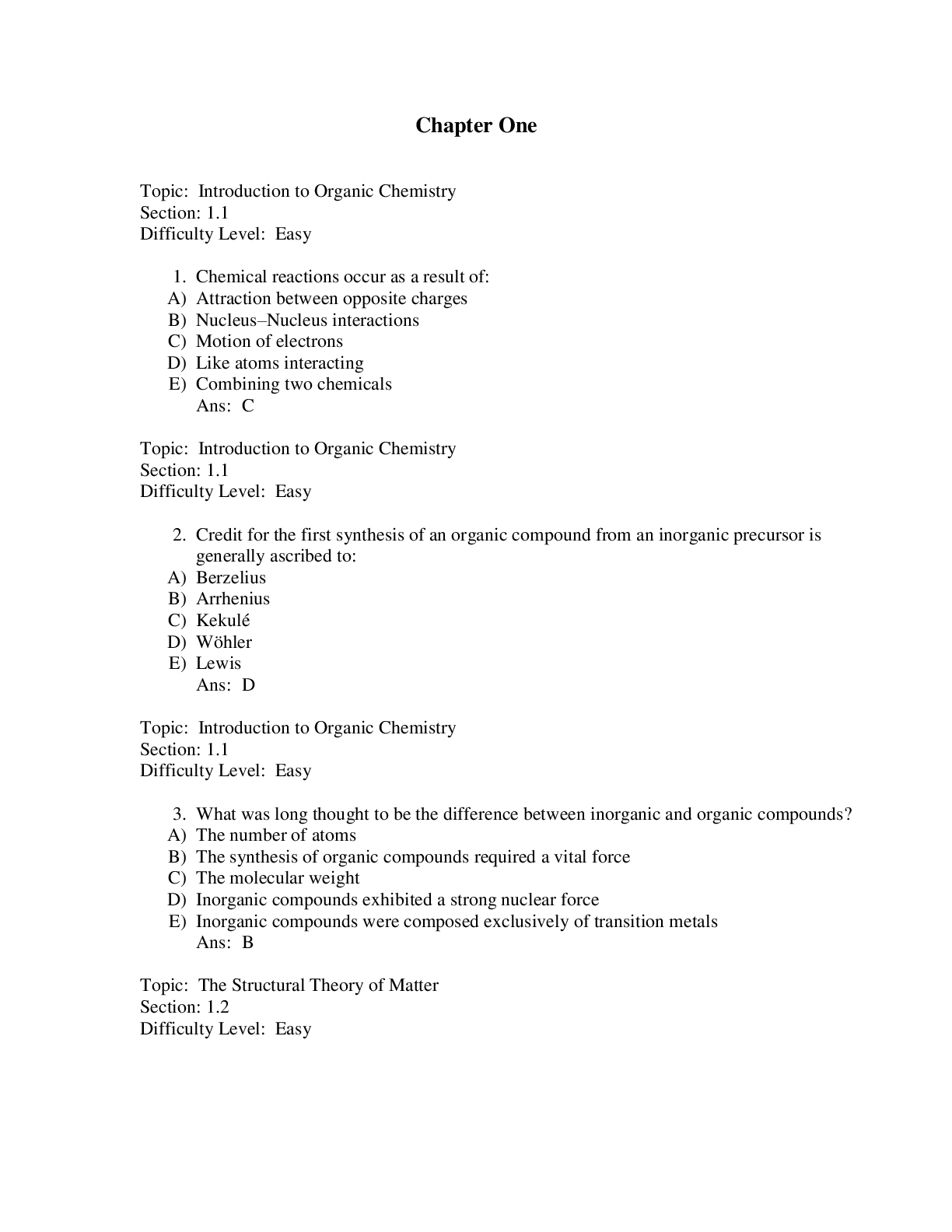Biology > QUESTIONS & ANSWERS > Micro Exam 6 Portage Learning. Questions and answers. Graded A+ (All)
Micro Exam 6 Portage Learning. Questions and answers. Graded A+
Document Content and Description Below
Micro Exam 6 Portage Learning. Questions and answers. Graded A+ True or False. Because the genome is contained within an enclosed space (much like the nucleus of a cell), viruses are classified as ... eukaryotic. - Ans-False. Viruses are neither eukaryotic nor prokaryotic Describe the two basic components of a virus. - Ans-1) Genomic material made up of DNA or RNA 2) Capsid, which is a membrane like protective structure that contains genetic material. The ________ surrounds the capsid of some viruses. - Ans-envelope Rank the falling viruses from smallest to largest: Poliovirus Variolavirus Orthomyxovirus - Ans-Variolavirus Orthomyxovirus Poliovirus True or False: Viral replication occurs after it attaches and enters the host cell. - Ans-True True or False. You would expect to see a viral envelope on a virus infecting a bacterial cell. - Ans-False. The majority of animal viruses are enveloped whereas the majority of plant or bacteria infecting viruses are not Rank the following viruses based on their size from largest to smallest: Paramyxovirus Polivirus Smallpox virus - Ans-1 (Largest): Smallpox2: Paramyxovirus 3 (Smallest): Poliovirus True or False: Highly infectious viruses undergo genome replication prior to viral attachment and entry. - Ans-False. The viral genome is never replicated before attachment and entry regardless of its level of infectivity Place the following viral life cycle steps in order beginning with viral attachment and provide a description of each step. Uncoating: Release: Replication: Attachment: Entry: New infection: - Ans-1) Viral Attachment: Virus particle attaches to surface of host's cell 2) Entry: Virus fuses with host membrane and enters cell 3) Uncoating: once viral genetic material is inside host's cell, envelope will shed releasing genetic material (disessembles) 4) Replication: Viral genetic material replicates and new viral proteins are made 5) Release: New viruses produced & leave host cell 6) New Infection: Newly released virus particles find a new host cell to infect (continuing process) A virus that infects bacteria is called a [answer1] and contains a [answer2] -sided polygon capsid. - AnsBacteriophages 20 True or False. Structurally, bacteriophages are distinct from viruses that infect plant or animal cells. - Ans-True. Bacteriophages are structurally distinct from viruses that infect plant and animal cells True or False: Structurally, bacteriophages are similar to viruses that infect animals - Ans-FalseIdentify the following components of a bacteriophage. - Ans-1) Capsid 2) Collar 3) Sheath 4) Base plate 5) Tail fibers Describe the main differences between lytic and temperate phages. - Ans-1) Lytic: bacteriophages replicate within the host bacteria until it ruptures, effectively destroying the host bacterial cell. 2) Lysogenic (temperate): can exist in non-replicative state such that its viral genome is integrated into host genome until lytic cycle is triggered. Based on the following image, would you expect the viral titer to be high or low? Why? - Ans-Low. If the lytic cycle would to continue, more bacterial cells would be destroyed, essentially clearing the media. Which of the following cannot be spread via airborne particles: Measles Mumps Rubella A and B None of the above - Ans-None of the above True or False. A patient infected with rubella is only considered infectious when the trademark rash is visible. - Ans-False. A patient diagnosed with German measles may additionally experience what disease? Select all that apply. Impetigo Conjunctivitis Rheumatic feverInfluenza-like symptoms - Ans-Conjunctivitis Influenza-like symptoms [Show More]
Last updated: 2 years ago
Preview 1 out of 6 pages

Buy this document to get the full access instantly
Instant Download Access after purchase
Buy NowInstant download
We Accept:

Reviews( 0 )
$6.50
Can't find what you want? Try our AI powered Search
Document information
Connected school, study & course
About the document
Uploaded On
Jul 02, 2022
Number of pages
6
Written in
Additional information
This document has been written for:
Uploaded
Jul 02, 2022
Downloads
0
Views
83


